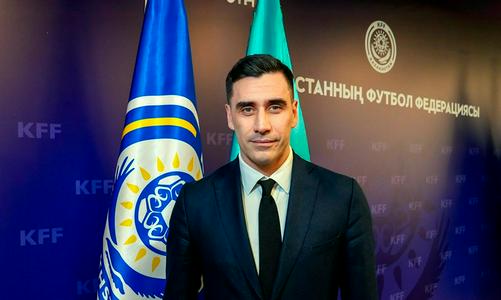A helicopter video has captured the scene shortly after the Sardoba dam burst in Uzbekistan, flooding nearby farms and villages and causing evacuations and damage in neighbouring Kazakhstan. A segment of the dam wall collapsed on the morning of 1 May, leading to millions of gallons water pouring out into the surrounding fields and submerging local villages.
Officials say that over 85,000 people were evacuated in Uzbekistan and more than 50 hospitalised. Around a hundred high-rise apartment blocks have suffered damage, along with 16 schools, 7 medical facilities, 13 bridges and 52 kilometres of road.
There have been reports of some heroic rescues. “The water came quickly. One family was stuck in their home, they couldn’t get out. The water was already all around them. One national guardsman, a young guy, threw himself straight in there. And he pulled out nine people, he saved all of them,” Gazeta.uz cites one National Guard member as recounting.
Reports have come in of at least three deaths, however. Two of them are a 14-year-old girl and her 9-year-old brother who were returning home through one of the nearby villages when the water struck. The other is a National Guard employee who was carried away by strong currents in the early hours of the disaster, along with his colleague. The search for the deceased man’s colleague was said to be ongoing.
Damage from the burst was reported as far away as southern Kazakhstan. The volume of water that flowed out of the Sardoba dam was so great that it caused canals and reservoirs in the neighbouring republic to overflow. Nearly 900 residential homes in 10 border villages there were flooded, along with three schools, 55 kilometres of main roads and 7,639 hectares of farmland. Initial estimates put the damage in Kazakhstan at around a million dollars.
Earlier today, it was reported that Kazakhstan planned to direct an official complaint to the Uzbek government, stating that the Kazakh authorities had objected to the building of the dam and had not received sufficient information from their Uzbek counterparts. The deputy head of the Turkestan region of Kazakhstan accused the Uzbek government of concealing information, leading to a delay in evacuating the residents of flooded Kazakh villages.
Later, however, the Kazakh foreign ministry announced that the country would not be following through with its complaint, “in recognition of the close cooperation” between local authorities on either side of the border to reduce the negative impact of the flooding.
The Uzbek authorities soon announced that the situation had been brought under control and the remaining water flow diverted into a nearby lake. Meanwhile, state TV focused exclusively on President Mirziyoyev consoling local residents and confidently handing out orders at the scene. The state agency in charge of monitoring dams and reservoirs declared the cause of the accident to be a combination of several days of torrential rain with sudden strong winds (there have been a number extreme weather events in the region in recent days, with lethal hurricanes in eastern Turkmenistan and southern Uzbekistan, and flooding in Kyrgyzstan.
Others, however, have blamed systematic corruption in the construction industry. One of RFE/RL’s anonymous sources claimed that simple schemes to overcharge and under-supply on construction materials are currently used “in all construction projects – whether it’s a high-rise apartment block, a metro station or a reservoir”. Investigations are now underway into official negligence and the violation of construction safety regulations. The situation is not ideal for President Mirziyoyev, who oversaw the construction of the dam (2010-2017) during his tenure as prime minister.
Work on the construction of a hydro-electric power station at the site had reportedly begun days before the disaster.









